South Eastern Wisconsin Comic Book Stores
September 17th, 2017 by Proprietor
Taking a break from the regular Brady posting to post something a little more personal in nature.

This post was inspired by a long time friend, Dave, our email conversations go back and forth at times to the halcyon days of youth. We grew up in Kenosha, and the evolution of comic shops in the city, as well as in the nearby city of Racine is a topic from time to time. Forgive me if things seem a bit jumbled, a lot happened in a period of about ten years. There was a good deal of overlap in stores opening and closing, and the owners of the stores were somewhat associated with each other. Many were friends of mine, and some are still friends, at least as friendly as Facebook. It was also a time of expansion of popularity, and massive change within the comic book industry. The comic book community in Southeastern Wisconsin, which was mainly Kenosha and Racine, was somewhat quirky compared to Chicago and even Milwaukee, since both cities felt superior to Kenosha and Racine, even separate. Driving to Kenosha or Racine for comic books for people in Illinois or Milwaukee was like driving to Montana for computers.
As a long time comic book collector, nerd, etc. it was awesome if I could go to an actual comic book shop. It was rare for me, since there were no comic book shops in Kenosha or Racine. There were several in Milwaukee, and a few down in Illinois within about a 30-45 minute drive. Not understanding economics as such, and family budget, as a child I always wondered why my parents where not willing to take me to a comic book shop on a regular basis. Such is the ignorance of childhood.
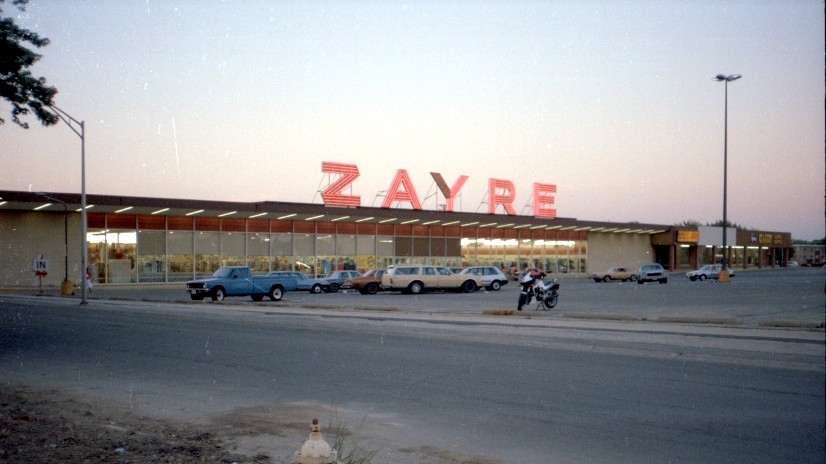
Until a comic shop opened in Kenosha, when I was 14 years old, more on this later, my comic book collecting was more casual, and limited to what I could by in a drugstore, a small bookstore that carried comics or the occasional trip to Pershing Plaza, where RK News was located. The real thrill sometimes came when my family went to Zayre. It was a chain department store and there were several locations in Racine. Zayre had an area where there were bags of comics. Four comics prepackaged in a flimsy plastic wrap type bag for a dollar. Many times, people would open the bags, take out comics they wanted, and put them in a bag together. So it was sort of make your own comic bag. The clerk at the checkout usually counted to insure that there were four comics. Though there was some disappointment upon coming home, and realizing I had a duplicate, I made the most of it. Guess what was going to be a prize for a birthday party game, my duplicate comic. For the most part I had a variety of titles and issues. No real run or extensive collection. Just a stack of comics that occasionally I reread or added to. I remember having Thor, Ghost Rider, Avengers, Superman, Batman, Spider-Man, and until my brother decided he wanted all the Legion of Superheroes comics for himself, some Superboy & Legion of Superheroes.
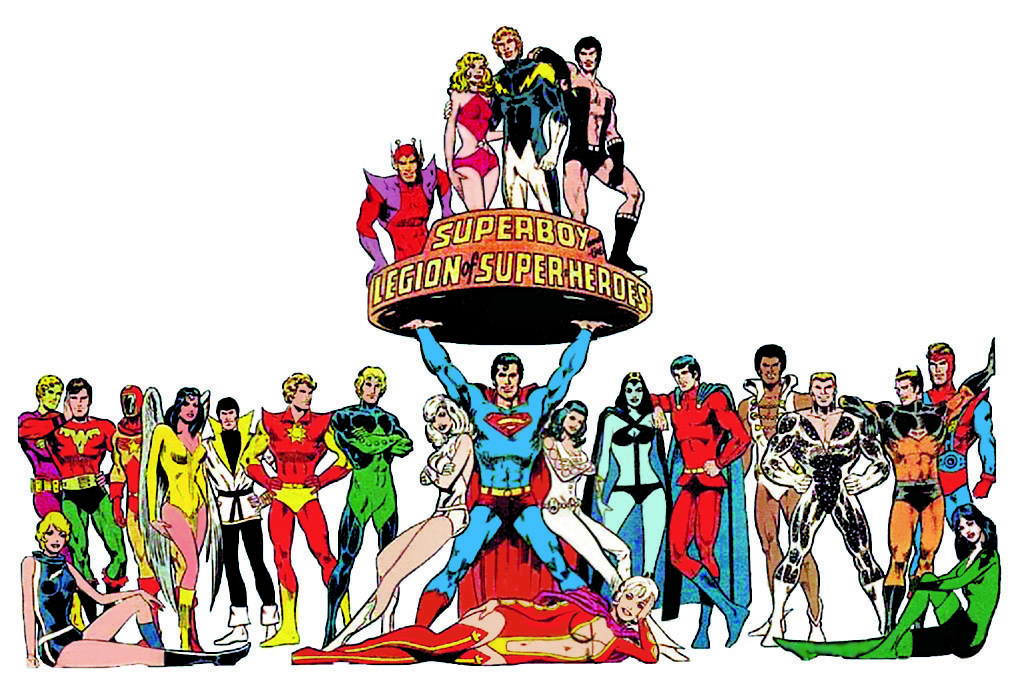
It was very difficult to stay interested in a comic book series, because there was no way to really consistently get missing issues or find a certain issue, even if my family regularly went somewhere that sold comics. Trying to collect Batman or Spider-Man or Superman or Legion of Superheroes on a monthly basis meant spending money on a subscription.
A subscription involved, cutting a form out of the comic book, checking a box of the comic(s) you wanted to subscribe to, then mailing a check with the proper amount of money written on it to the comic book company. It would take 6-8 weeks for you to begin getting the comic book. Because of the lag time between sending the subscription and getting the first comic, it meant buying a comic at a store, and hoping you were not buying a duplicate. The comic book was considered third class mail, like a magazine, so the person delivering the mail would deliver the comic when it was a light mail day or convenient. The comic was not packaged like a gold watch, it came in a brown paper envelope, it was usually folded, spindled and mutilated. If you had a comic that was in decent condition and readable, most of the time you did not care. No one was really thinking about comics as collectible or having any monetary value, except for the real geeks and nerds. Which I eventually became.
If you wanted to get back issues of any comic, there were comic book stores in larger cities that advertised lists of comics available in comic books. This was a hit or miss proposition, since the comic book store sent the information via mail to the comic book publisher. The publisher put the advertisement into the comics. There was usually a 6-8 week lag time between the list being sent, and publishing of the comic. When you sent your money to the store, you had to not only send a list of what you wanted, but alternative issues if the ones you wanted had sold out. If you got your comics, they were better packaged than the ones sent by the publisher, usually the comics were sandwiched between to pieces of cardboard. If you wrote to the store advertising in the comic book, and sent a self addressed stamped envelope, the store sent you an up to date list.

At the age of 13, I entered into Junior High, and became friends with a fellow geek, Tyson. We played Dungeons and Dragons together once a week in Junior High after class, and with a few other friends on a monthly basis at each other’s homes. This tradition carried through into high school, even though Tyson went to a different high school. Tyson had a cousin who was starting a comic book store using his personal collection for back issue stock. The first and at the time only store of it’s kind in the Kenosha and Racine area. My comic book collecting went to another level. Instead of being just a casual collector, I could focus, and actually get a series. Tyson told me in the fall of 1981, and the store was not going to open until the following year.
The Comic Emporium, was the first dedicated comic shop in Kenosha. It had back issue boxes, a wall of very valuable back issues behind the counter, shelves filled with current comic books, supplies for comic book collecting, and comic book related magazines. There was even an area selling gaming supplies for war games.
New comics were in the back of the store displayed in racks. Every week new comics were put into the racks in back, and the remaining comics from the previous week went onto the other shelves with the other back issues. Most Midwest comic book stores kept three months of back issues at cover price on their shelves before bagging them and putting them in the back issue stock for a higher price. The awesome part of the Comic Emporium opening, was location. It was a block from the church my family went to, and I was now in confirmation class. We were Lutheran, and once you turn 13, you enter into confirmation class. Since the classes were about the length of a school year, I could talk my parents into going early, and we would stop at Comic Emporium, where I could pick up the latest issue of a series I collected. Then my parents would drop me off at church for confirmation class.

The Comic Emporium was the go to shop for everyone in Kenosha and Racine. A few years after opening, it moved to a different location. Which was a little inconvenient, but by that time, I had a drivers license. My parents were fine with me driving once a month to the Comic Emporium. I did not have a lot of money, and gas, though not horrendous, cost money. My parents were doing their best to watch out for my economic health. There was this looming thing called college, and that cost money. Plus there was the exchange trip. It did make collecting difficult, but I had friends who lived closer to Comic Emporium and went on a weekly basis. So I gave them money and a list, and they would pick up my comics for me. A few days before I left to live in Germany as an exchange student, I went to the Comice Emporium, and purchase a dozen comics to take with and read on the flight. Comic Emporium was the first place I visited when I returned from Germany. When I graduate high school and was in college, had a part time job, I could do what I wanted.
During my sophomore year in college, I was working in the campus library, and I met a fellow co-worker, Dave, who was interested in comics as well. Dave told me about a new comic book shop that had opened in Kenosha, further south of Comic Emporium. Rockheads had opened in a pseudo mall, to call it a mall would be a disservice. It was an old department store that someone was trying to convert to a mall. I believe it was called Market Square. Rockheads was more eclectic compared to Comic Emporium. The owner, Brian, was into toys, and games as well as comic books. Brian offered a variety of independent comics and magazines that Comic Emporium did not offer. There were magazines related to B-Movies, Science Fiction, and Fantasy. Because Rockheads had a diversity in product offering, Rockheads carved out a niche. Rockheads also did well when it came to comic book sales. The store would move to various locations over the next few decades, and change ownership, but it still remains. Ironically almost across the street from the second Comic Emporium location. Though there was no real animosity between Brian and Kenny, one preferred to be the big dog versus the other. Eventually Kenny would tire of running a business, and shutter Comic Emporium, which was just after I graduated college.

Batman, starring Michael Keaton, had set box office records, and generated interest in comic book themed movies. This interest translated into people becoming interested in the source material, comic books. Several comic book shops began opening in Racine. One comic shop, who’s name I do not recall, hosted one of the first comic book conventions in the Kenosha/Racine area, in a building that had been converted to a psuedo-mall. They ended up shutting down after. The location was not very good, and the shop hours were not convenient for many customers.
Several comic book shops would open and shutter quickly in both Racine and Kenosha. One I was fond of, was Goofy’s. An awesome comic shop that opened in downtown Racine during the spring/summer between my Sophomore and Junior year in college. The owner had an interesting policy. He did not charge sales tax, so it was essentially giving every customer the equivalent of a 5% discount. Cover price for all merchandise was the price a person paid. On back issues, the price he had marked was the price you paid. I was working at Walmart, but I had Thursday off. Thursday was new comic day, and it was also gaming day at Goofy’s. When the store closed, the group of gamers set up and played Dungeons and Dragons for several hours. I had lost interest in D&D, but the guys who played at Goofy’s seemed like a good group. It was fun. Then my work schedule at Walmart changed, and I could no longer play or go to Goofy’s. I had Monday off, but Goofy’s was closed Mondays. When I went back to college, I quit Walmart, because I already had a job on campus. My class schedule and work schedule was such, I could go back to Thursday night gaming, I returned to find Goofy’s had closed. I found out from a fellow former customer, that the owner of the building was unhappy because other renters were complaining that customers for Goofy’s were taking up prime parking spots, the owner of the building figured if Goofy’s was doing good business, then the owner of the shop could pay higher rent. Comic book stores run on a very thin profit margin. Though Goofy’s was successful, the bump in rent put him out of business.

Also during my sophomore year in college, a woman who worked in the university library, told me her husband, Chuck, was opening a comic book shop with a friend, Tony. Chuck, was a co-worker of my father, so I had met him a few times. Chuck was a fixture in the whole comic book scene in southeastern Wisconsin, and the Midwest region. Chuck had bought and trade comics throughout the area, and set up tables at Chicago Comic Convention, which was the only major comic convention for the Midwest region. Chuck had connections and knew comic book creators personally.
Chuck started the Southeastern Wisconsin Comic Book Club, while I was in high school, and it hosted a show in a room in UW-Parkside. I would go to college at Parkside and get an on campus job, eventually graduate from Parkside. Dennis Kitchen, of Kitchen Sink press, was co-founder of the club as well. The SWCC was a unifying group for comic book collectors in Racine and Kenosha. At the time of the club’s formation, the major complaint was there were no comic shops in Racine. Comic Emporium was the only shop in the area, and it was located on the south side of Kenosha, which made it inconvenient for people from north Racine to get to. For people in north Racine, the time it took and distance to Comic Emporium was no different than driving to the closest comic book shop in Milwaukee. Eventually Chuck, with Tony, raised the funds to start another comic shop.
Chuck and Tony opened Amazing Comics & Stories in a small store front in Racine, next to a beauty shop. Chuck and Tony would become good friends for a while, and were wonderful people. When I had lost my first career focused job after graduating college, Chuck and Tony graciously offered me a job working Saturday at the store, until I was able to get another job. I worked at Amazing on Saturdays. As was, and still is, the practice, comic book store employees took part of their pay in comic books. So, I was able to keep up on all the series I collected. When I finally got a job, I had to stop working at Amazing, because my job required weekend hours. Amazing would expand over several years to taking over the store front of the beauty shop as well. Amazing purchased most of Comic Emporium’s stock, when that store closed.
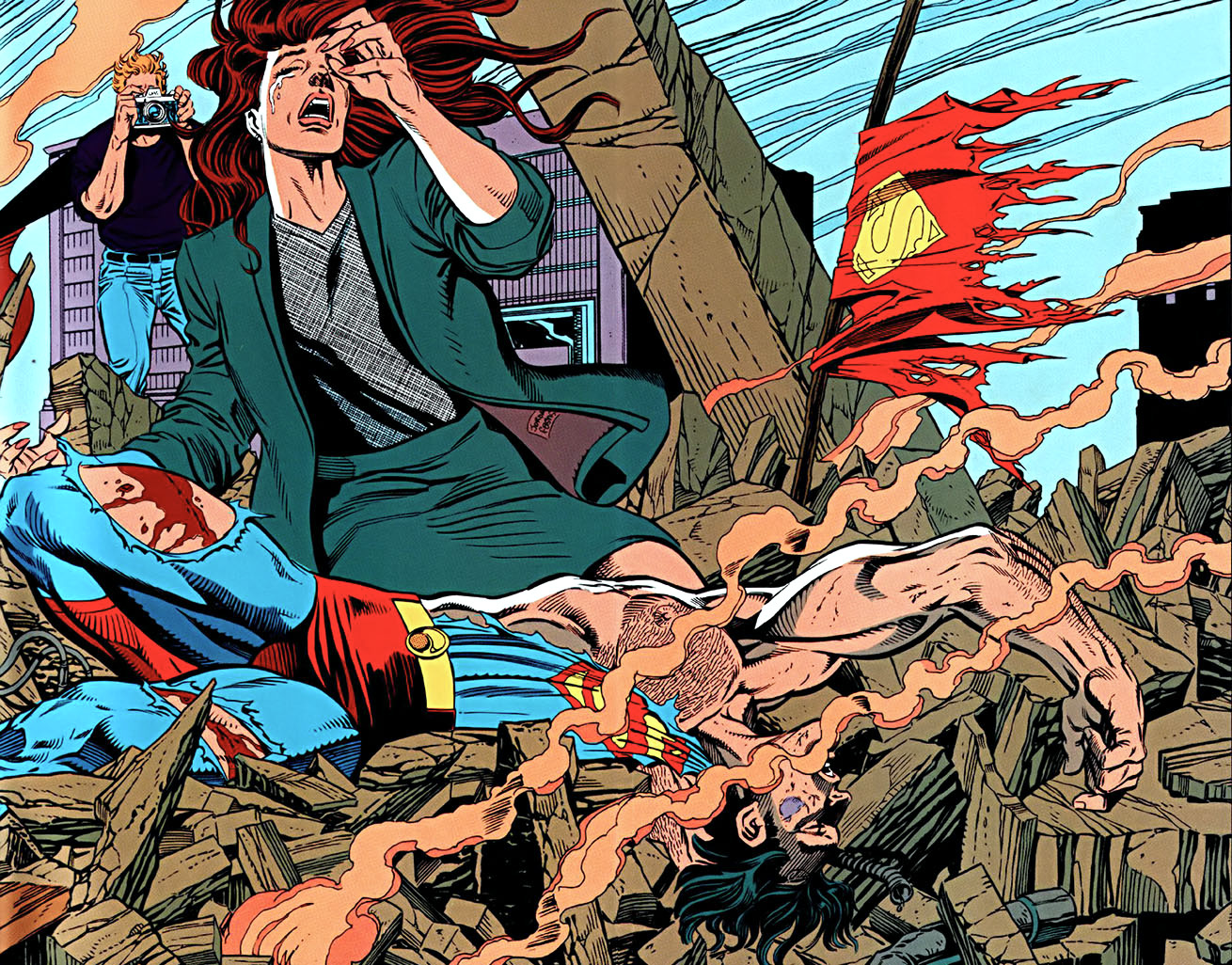
Then came the Death of Superman hoopla, it is also referred to in the comic community as the death of comic book collecting.
DC had plans to have Superman wed Lois Lane in the comic. The show Lois and Clark, staring Dean Cain and Terry Hatcher, was on television, and a big hit. There was going to be a wedding on the show, but in order to coincide with the comic book, DC needed a story line that could last a year in the Superman comics. Then the show and comic book wedding could transpire at the same time. DC came up with the plan to kill Superman. This drew major media attention. Everyone wanted to buy a million copies of the Death of Superman issue. Comics were being viewed as investments, like stocks. People thought that the issue would rise in price to a level equal to Action Comics #1, and their financial future was secure. Nope, you can still by the Death of Superman issues for less than cover price. In fact, if you go to a local comic book store and are willing to rummage through quarter bins, you can find the issues. It is easier to buy the reissued trade paperbacks that gather the story line into separate chunks. Death of Superman and World Without Superman.
While Amazing was the primary comic book store in Racine, an upstart was rising. Legendary Comics & Sports Cards started in a strip mall. Felix was running the comic book side, and his friend and business partner was running the sports card side. Comic books and sports cards do not mix. The attitudes of the collectors are much different. I started going to Legendary, because Felix was willing to trade. Felix did not have a huge stock of back issues, and I had a huge amount of back issues I wanted to trade for new comics. Felix traded reasonably, so I could get my comic books for less or even get store credit.
For the most part, comic book stores in the Racine/Kenosha area operated on friendly terms. They helped each other out. If a certain comic was selling well in one shop, the owner would approach another shop, and offer to trade stock or buy stock from another shop. The Death of Superman destroyed a lot of that. Since everyone wanted Death of Superman, and related comics, shops ordered heavy. Stock moved quickly. Owners called each other to try and by off extra copies for possible customers. Since all the shops were selling out, it was hard to get stock to satisfy demand. Shop owners were not going to turn away a possible customer, and recommend they check competition. If a person did not know that there were two comic shops in Racine or that there were comic shops in nearby Kenosha, telling them about the competition was not good business. Tensions began to develop.
Legendary survived the Death of Superman, and remains in it’s current location today. Amazing shuttered it’s doors a year or so later due to various circumstances, but the Death of Superman had something to do with the shop closing. Discussing the details does not really enhance the story, and I do not wish to discuss events involving good friends.
The Death of Superman did bring some interest in comics, but the launch of Image Comics created more. There was also the launch of Magic The Gathering. The confluence of Image and Magic caused several stores to pop up in the Kenosha area whom focused on selling the new collectible card games, but sold comics as well.

Image Comics was a company composed of the “it” artist of the comic industry. Artists from DC and Marvel whom were popular were tired of doing work for the big two, and getting nothing in return. Comic book art, and writing was a work for hire concept. If you were a writer or artist for a comic book company, you were expected to contribute creatively to the company. New characters became the property of the company. Rob Liefeld created Deadpool, whom is one of the biggest comic stars for Marvel currently. Even though Liefeld did not know Deadpool was going to become so popular, he knew Marvel owned the character. Rather than create more characters for Marvel to make more money, Liefeld left with the other Image co-founders. Image was doing all the gimmicks, and generating a lot of buzz in the comic book community.
Comic Etc. was a small store that opened up in Kenosha. The owner was focussed on comics, but Magic the Gathering was also a very lucrative market. What was different about Comics Etc., the owner was a woman. Comic Etc. actually misspelled their name on the side of their building. It featured a mural of Spider-Man and Wolverine, with “Comic Ect.” The owner knew it, and did not care. Unfortunately the owner was a typical opportunist who entered into the comic book and collectible card game market to make a quick buck. She paid pennies on the dollar for trade then marked them up to the maximum guide pricing, even if the comic or card could be turned around quickly. Most decent shop owners give better trade in value to a customer if the shop owner knows they can turn the merchandise around quickly.

Within a few years, there was also a growing interest in comic book related toys. Image was launching action figures related to their products, and there was a relaunch of Star Wars toys. The owner of Comic Etc. had a bit of a side deal going with several toy hunters. Toy hunters would go to all the local department stores, like Target, Shopko, Walmart, and buy up the rare figures, and leave peg warmers. The hunters would come to Comic Etc., get what they paid for the toys, and a little profit, the owner would then double the price for the toy.
Comic Etc’s owner was antagonistic to the other comic book store owners as well. Felix, owner of Legendary, told a story about how she came in and caused a ruckus, mentioned her store out loud to other customers, and even offered better discounts if the customers went to her store.
The owner of Comic Etc. also specialized in selling Bad Girl comics, which was another comic industry event. Bad Girl comics featured a female protagonist, who was more sexual and aggressive than a standard comic book heroine. Bad Girl comics often featured nude covers, and other gimmicks to generate sales. Most of the creators were budding porn producers. To be honest, most of it was garbage, but there were a few interesting concepts. Comic Etc. would stick around for several years, then fold up and move to internet sales or selling at a local flea market.
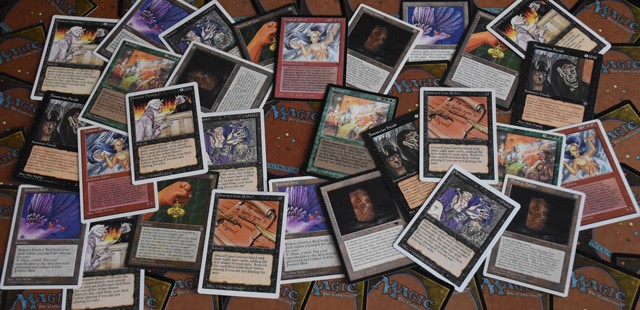
Chadwick’s was another store that opened in Kenosha. Specializing in collectible card games, but having new comics, and limited back issues. Jean and Doug were wonderful people. Chadwick’s would hold gaming events involving Magic The Gathering, they had internet gaming set ups, and a coffee shop. Unfortunately they fell prey to the unscrupulous mentality of building owners that permeated Kenosha at that time, as well as zoning issues. Many building owners in Kenosha had the odious practice of having tenants improve the property, once the property was improved, the owner would up the rent. If a business was doing well, and had a high foot traffic, the owner would up the rent. It did not matter if the business was operating on a very thin profit margin, if the business was doing well, it meant more money, so the tenant could pay more rent. If there was a parking lot for the building, the owner would charge separate rent on the parking lot, if the owner could not raise rent on the building, the owner raised rent on the parking lot. Chadwick’s survived several years at their first location, but left over a rent dispute. They moved to a new location, but due to the nature of their business, it was classified as an attractive nuisance to a nearby school, and had to get special permission from the city to open at their new location. This meant zoning fees and permit fees. Ultimately Chadwick’s was shut down and Jean and Doug move to internet sales.
When I moved out of the Kenosha/Racine area, I did remain a customer at Legendary, but economics eventually dictated that I find a comic shop in the Milwaukee area. Driving down to Racine every week, was becoming costly. My friend Dave kept me up on the goings on in the Kenosha/Racine comic shop realm.
The building that had housed Comic Etc. was sold, and a new tenant tried to open a comic book store. Epic or Heroic or something to that effect. The owner of the shop was a bitter customer of Rockheads and wanted to compete. Paul had the goal of shutting down Brian. Dave told me Paul was a terrible business man, and probably would not succeed. Then something interesting happened. Someone set fire to Paul’s store, the damage was extensive enough that the building would have to be torn down. There were rumors it was the owner of the building who set the fire, because he could not pay the mortgage, and was going to be foreclosed. Even the owner of the shop, Paul, who was only renting the building was a possible suspect. The motive was he wanted out of his lease to move to another location.
Interestingly, the stock that survived the fire was sold to a man who was a Legendary Comics customer. Everyone called him The Hog for various reasons. The Hog tried to start a competing store to Legendary. What bitterness exists is not known to me, because The Hog was a long time customer at Legendary. I knew him when he was just a piglet. I learned from Felix that The Hog was a poor business manager, and his comic store, Drop Bear Comics, shuttered within three months. The Hog returned to being a customer at Legendary.
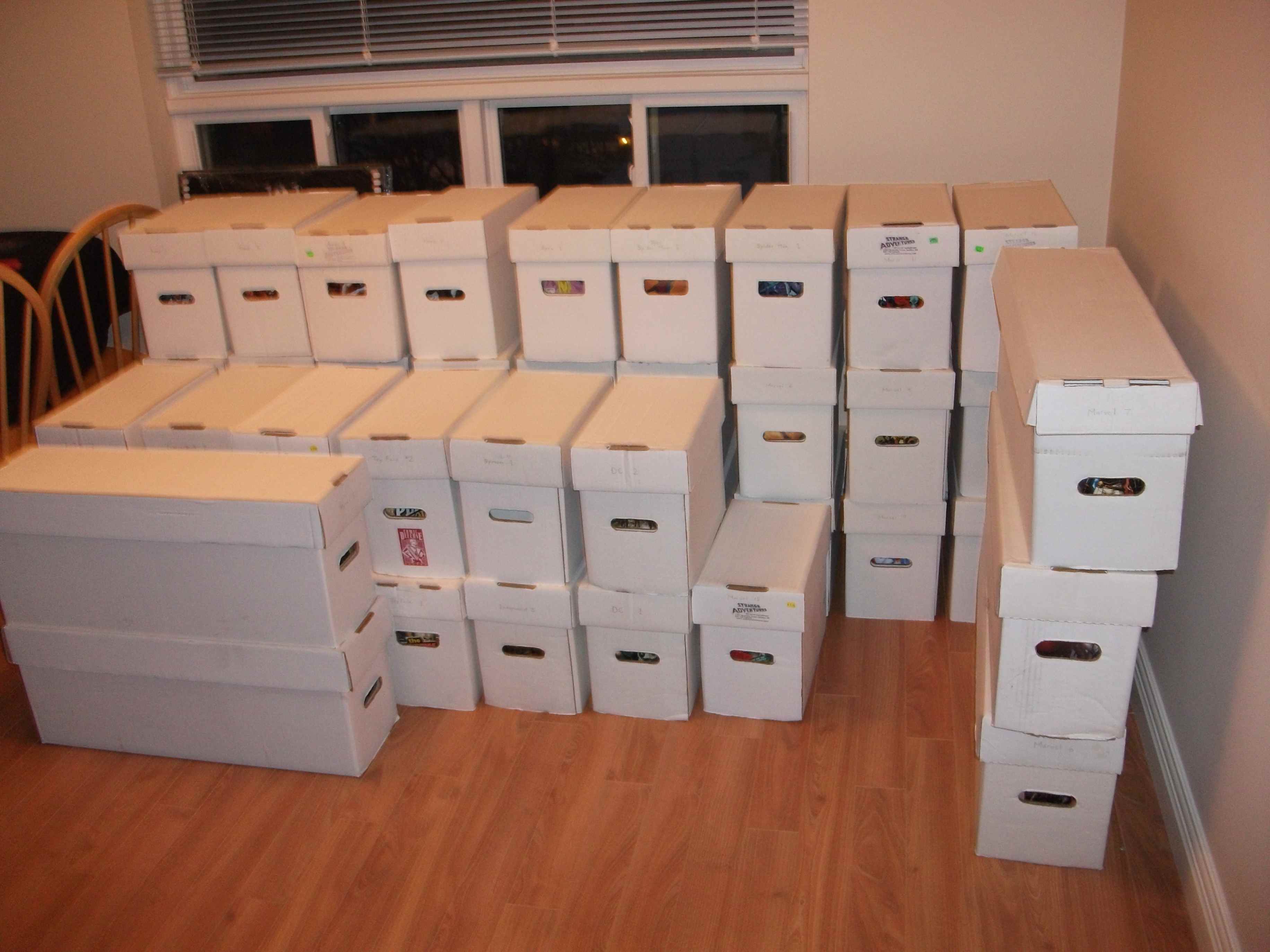
Currently in Racine and Kenosha there are two long time shops. Rockheads and Legendary. Both survived through the decades on solid business management. Rockheads has more diversity in product, still selling gaming stuff, with less toys. Legendary is a pure comic shop, with some comic related merchandise. What the future holds for both stores, is unforeseeable. Dave, told me Felix plans to retire soon, and might sell the store to a long time customer. The current owner of Rockheads, Alan, has no plans on retiring or selling the store, but he is not young.
There are also various other stores that have cropped up over the years in the Kenosha and Racine area, a Google search will yield results. I have seen several shops open and close in Milwaukee. Unless you can build a clientele from local residents in the area, and have a diversity of products, which means investing in action figures, games, trade paperbacks, and merchandise, a store will not survive long. Many new collectors collect differently.
It is remarkable to me, a comic collector moving on four decades of collecting, how the hobby has changed. Comic book stores at first were a rarity. Comics were largely sold thru drugstores, newsstands, and in bookstores. If you did not have access to stores, you had to subscribe. All of this was before the internet and digital age. Conventions were the only way someone who collected comics could find back issues. Fans communicated with each other through mail or at times met for small gatherings to discuss the hobby, and trade comics. Then comic book stores cropped up in many smaller cities. Kenosha and Racine were examples. Eventually comic stores became the only way to buy comics, since many drugstores stopped carrying comics, newsstands shut down, and bookstores did not feel the profit was good enough. Direct market was the adaptation. When comics became very popular do to some form of major media storm, comic book stores thrived, and competition became cut throat. Now, comics, which are a major inspiration and source for movies, television shows, and video games are dying. Stores still exist, but trade paperbacks or comic related memorabilia are major sources of income.
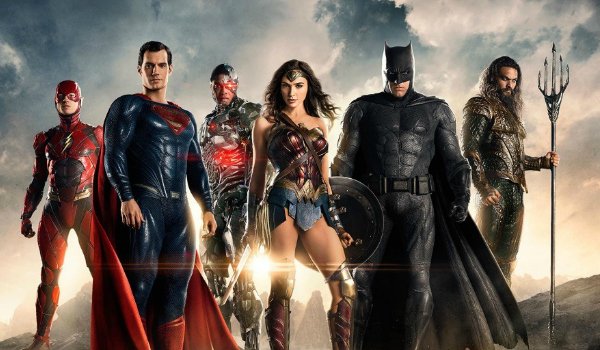
In the Kenosha and Racine area, essentially the deep Southeastern Wisconsin area, I grew up when comic book stores were limited to large cities or maybe surrounding communities that fed workers into the large cities. Comic books then began to catch on as a hobby. When interest grew, opportunities grew. A successful movie franchise drove people to source material. Shows related to comics drove people to source material. Then there was media hype around comic book stories. A major change in a character garnered news worthy broadcasts on major networks. That story drove people to the source material. Unfortunately those artificial events generated by the media seldom generated permanent collectors. Just speculators.
The comic book store I currently go to, Collector’s Edge, the manager told me that he could see comics going completely digital in a few years. Disney, the owner of Marvel, makes more revenue in one day on a movie release, than on all comic book sales in an entire year. Costs to print keep rising, and the sales do not warrant the costs. Digital formats cost little to produce, and so offers of getting everything Marvel produces digitally for the cost of a few printed comics can be made. Warner Bros, who owns DC, is flirting with the same concept. Many customers who come into the comic book store do not by monthly comics. Many want a trade paper back that reprints an entire half year of a comic or even an entire year. They can read the story at their leisure or all at once. It is like binge watching television shows. Also, movies no longer generate interest in the source material. When Wonder Woman came out, no one rushed to a comic book store to find Wonder Woman comics.
How comic shops will survive, that remains to be seen.
Thanks for stopping by.






